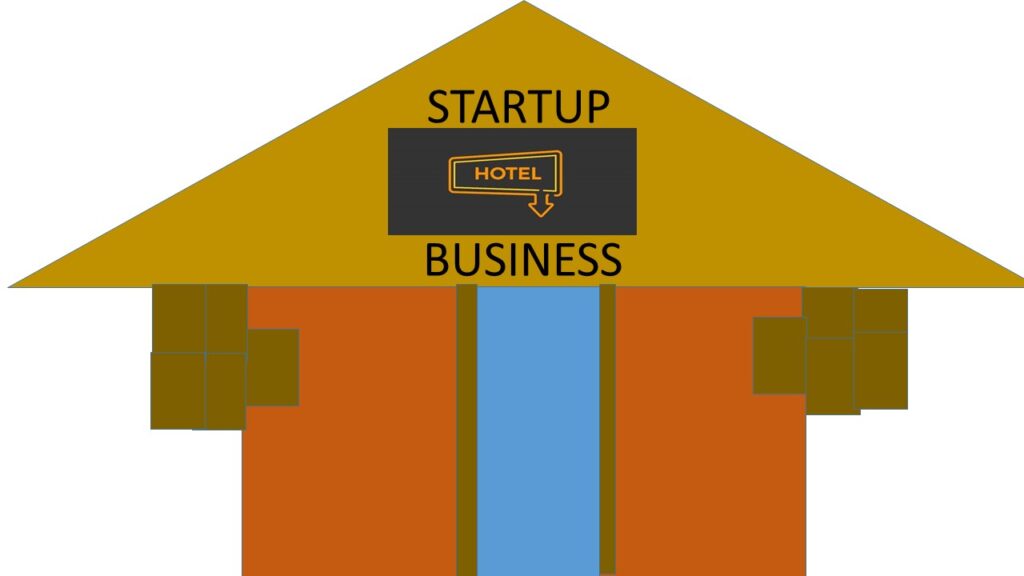Why Startup Hotel Businesses Should Care About Fraud Risks And Revenue Leakages?
Hotel businesses all over the world is big and cash cow center, if well-conceived and managed.
People will always have the need to travel, seeking for business deals, comfort, relaxation and rest outside their homes. Hotels provides the convenient facilities to meet the above needs and in return generate revenue for meeting the needs, goals and objectives of the hotel. Just like every other business around the globe, hotel businesses face the same risks, challenges and complexities that will impact the achievement of their corporate goals and objectives. Fraud risks, abuses and revenue leakages are some of the biggest challenges to the startup hotel businesses.
In the geographical environments where the management of hotel businesses appears to be more matured, fraud risks, abuses and revenue leakages are better managed and controlled, possibly, because of the lessons learnt, and the wealth of experiences, knowledge and skills accumulated over the years by the equity investors, management and board, and also the quality of the applicable laws and regulations, and the enforcement agents.,
In Nigeria specifically, hotel businesses appear to be booming at the moment as many edifice structures are springing up in many locations in the country including the remote villages. This indicates that the number of hotel business startups have been on the high rise, possibly motivated by the fact that some of the investors may feel safer investing in real estates than the financial market operations as a result of past ugly experiences. This is good news to the nation, entrepreneurs and citizens as these create wealth for all.
The doggedness, resilience, high intelligence quotient and knowledge level of the Nigerian entrepreneurs could be amazing. The depth of the understanding and tight control consciousness they demonstrate in managing their business is unimaginable. Their physical presence, direct and active involvement in the management and governance of their companies significantly wield strong power and influence on the success and growth of the companies.
Sadly, the performance of the majority of these companies tend to take rapid and drastic downturn on the retirement of the owners from active service. One of the primary root causes for this downturn is that most do not have well documented and robust standard operating procedure manuals established and embedded in the management and governance of the businesses and also the continued refinement on need basis as the companies grows and mature.
For example, no corporate strategic plan and annual budgets including revenue targets to drive strategic activities and the day-to-day business operations. Rules and monthly targets are often set arbitrarily and off-head which makes reinforcement difficult. Again, the achievement of the targets may not necessarily reflect the true marketing and business development capabilities of the employees relative to the available market opportunities and company resources deployed.
Some of the big problems associated with the above issues are difficult in enforcing rules leading to opportunities for high fraud, many missed growth opportunities and revenue leakages.
Based on my personal experience in the hotel industry as a risk and control assurance provider to both the matured big global brands and startups, my perception is that fraud risks, abuses and revenue leakages are one of the biggest areas that the startups find very challenging to deal with. One of the major contributing factors to the challenges is knowledge gaps.
Given the blooms and glooms provided above, particularly the ACFE assertions that fraud is clandestine, present in every organisation and cause organisations to lose about 5% of its annual revenue yearly, we are repeating the same key questions earlier asked at the beginning of this post.
As an entrepreneur or manager of a startup hotel business operating in Nigeria,
- Do you know how much revenue your hotel business should be making annually given the market opportunities?
- How much revenue is your hotel business actually making?
- What is the annual size of the revenue leakages in the company?
- How much of the revenue leakages can be attributed frauds and abuses?
- Do you know where to search and find the frauds and abuses in your organisation?
- How much knowledge of the applicable human right laws and regulations do you have?
- How are fraud investigations managed in your business without compromising the human right laws?
- Does your hotel business know when to involve law enforcement agents and what to do when charged to court?
- What have you been doing to minimise the scale of revenue leakages caused by frauds and abuses in your business?
Providing the right responses to the above questions requires that those charged with governance, management and assurance responsibilities in the companies should be timely and well informed with the right information. They also need to be well prepared and committed to bringing their best foot forward and taking the right decisions and actions for the best interest of the organisations they work for. The need to demonstrate their understanding of how frauds and abuses are committed, the potential impacts and leading practices actions required to combating them.



This is engaging and full option.
It qualifies to be a fraud body of knowledge .
Many thanks for sharing.
Very insightful write up Sally. I can relate very well with the content both from the Risk and Hospitality perspective. Keep up the good work.
Very insightful write up Sally. I can relate very well with the content both from the Risk and Hospitality perspective. Keep up the good work.
Very detailed and insightful report. A valuable read for any entrepreneur!
This is quite insightful regarding the key risks the hospitality industry faces on a daily basis. Being able to address the highlighted questions will help business leaders identify and address the leakages that may be affecting profitability.
Once again, thank you for sharing your valuable knowledge with the public as a gift.